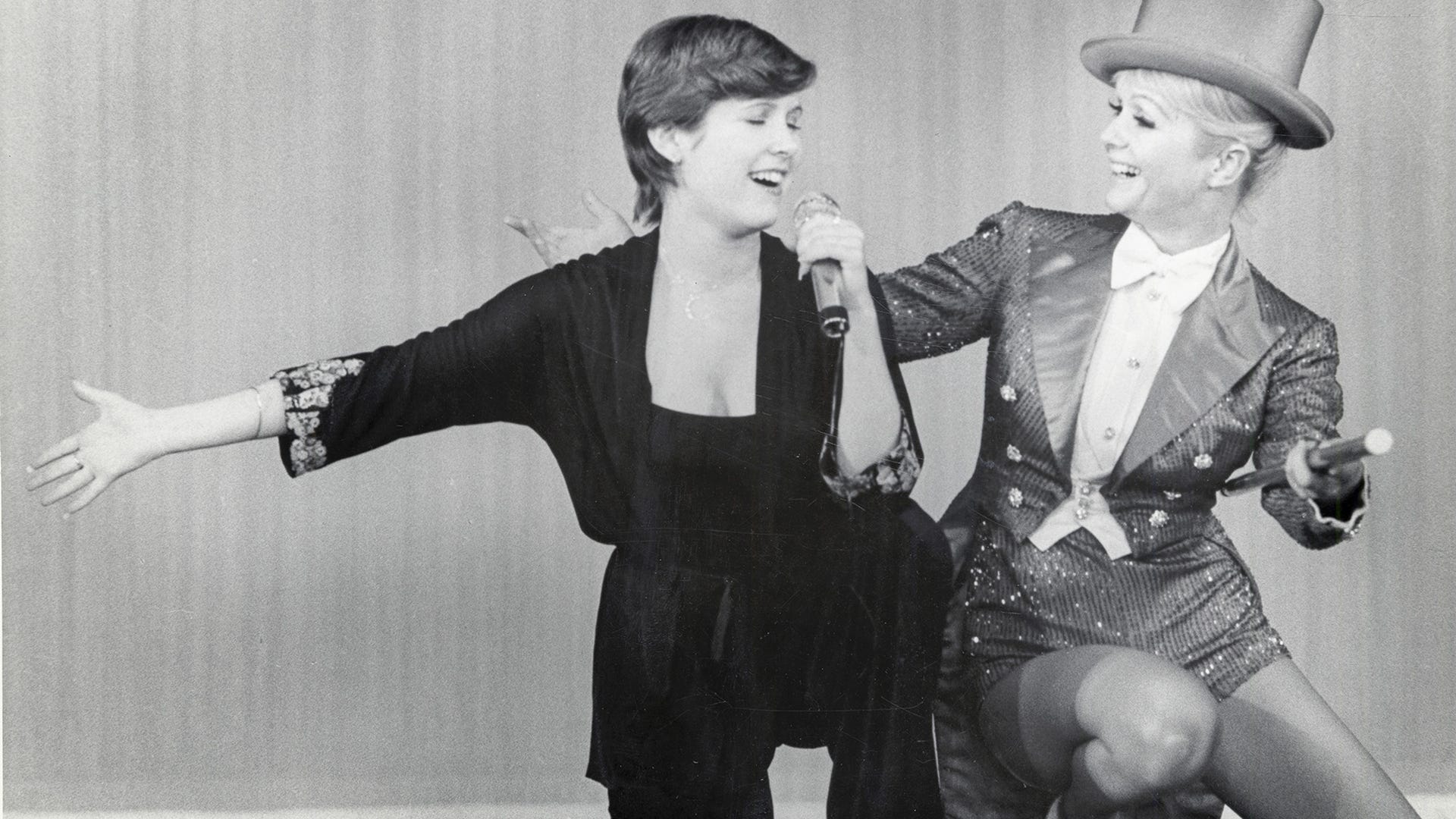Join or Sign In
Sign in to customize your TV listings
By joining TV Guide, you agree to our Terms of Use and acknowledge the data practices in our Privacy Policy.
HBO's Documentary on Debbie Reynolds and Carrie Fisher Is a Beautiful Testament to Love
A tale of two very different and very alike leading ladies.
Losing Debbie Reynolds just one day after her daughter Carrie Fisher was shocking and sad, absolutely, but in an abstract way it was also beautiful. Though we said goodbye to two Hollywood legends whose work made a lasting impact on culture, Debbie, as her son Todd has famously said following Reynolds' death, "wanted to be with Carrie," an otherworldly and yet clearly accurate assessment that affirms the power of supernaturally strong bonds. It seems almost unbelievable that the two mega-talented beings - both so remarkable, so vastly different and so similar - existed as mother and daughter and then followed each other into another dimension. But it happened, and HBO's documentary Bright Lights: Starring Carrie Fisher and Debbie Reynolds will endure as proof that we got to witness it.
Carrie Fisher and Debbie Reynolds to be laid to rest together
Billie Lourde pays heartbreaking tribute to Carrie Fisher and Debbie Reynolds
Bright Lights is a love story, to be sure. Carrie and Debbie's period of feuding is well-known, but here, Carrie is a doting daughter and best friend and sister. In an early scene, Carrie, who lives just paces away from her mom, brings her mother food and frets over the toll her mother's latest engagement will cost her. (Even their homes illuminate their differences; Debbie's baroque-meets-Victorian abode seems a world away from Carrie's pad, stuffed with zany items like some sort of counter-culture Applebee's.)
As steadfast as Carrie is about her mom not going out for another performance, Debbie -- clearly not in great health and progressively more feeble as the show unfurls -- has to go out and perform. "Debbie just has to keep going," Carrie says, in one of many unforgettable lines. "Aging is terrible for all of us, but she falls from a greater height." From there, the film smoothly transitions into a retrospective on Debbie's remarkable career, further illuminating how, in her era, stars were controlled, glossy and perfect studio creations.

Debbie Reynolds and Carrie Fisher, Bright Lights: Starring Carrie Fisher and Debbie Reynolds
HBOCarrie, meanwhile, wanted a mom. A home life. To be a teenager. It's safe to assume that all of us who didn't grow up rich and famous have at some point resented privileged Beverly Hills kids who turn out depressed, miserable addicts. Here we empathize with how that happens. Debbie desperately wants Carrie to be in show business; Carrie wants to be normal. The toll that rift takes is tangible. As Carrie comes of age in a time when therapy, "getting in touch with your emotions" and designer drugs are popular she becomes the perfect contrast to her picture-perfect mom: outwardly vulnerable, brutally honest, a little bit rock and roll. Carrie delves into her bipolar disorder and what it means.
It gets dark. We see their health problems, and some thoroughly non-glamorous scenes -- like Carrie signing autographs for money -- that remind us how much of a courageous, frank storyteller Carrie has been all her life. And yet despite their clear differences, it's a joy to see how much the two are alike -- particularly how they both randomly and spontaneously burst into song. "The only way you make it through life is to fight," Debbie says in a shockingly unflattering moment that shows exactly where Carrie got her toughness from. By the conclusion, we're aware of how these two women are perhaps the only people in the world who really understand each other; no question they're the souls who loved each other most. It's certainly sad to know they're gone, but the more poignant point is how they simply could not have lived without each other. Bright Lights is a testament to the ferocious fire love creates that cannot be extinguished -- not even in death -- which is a thing of spectacular beauty.
Bright Lights: Starring Carrie Fisher and Debbie Reynolds debuts Saturday, Jan. 7 at 8 p.m. on HBO.
